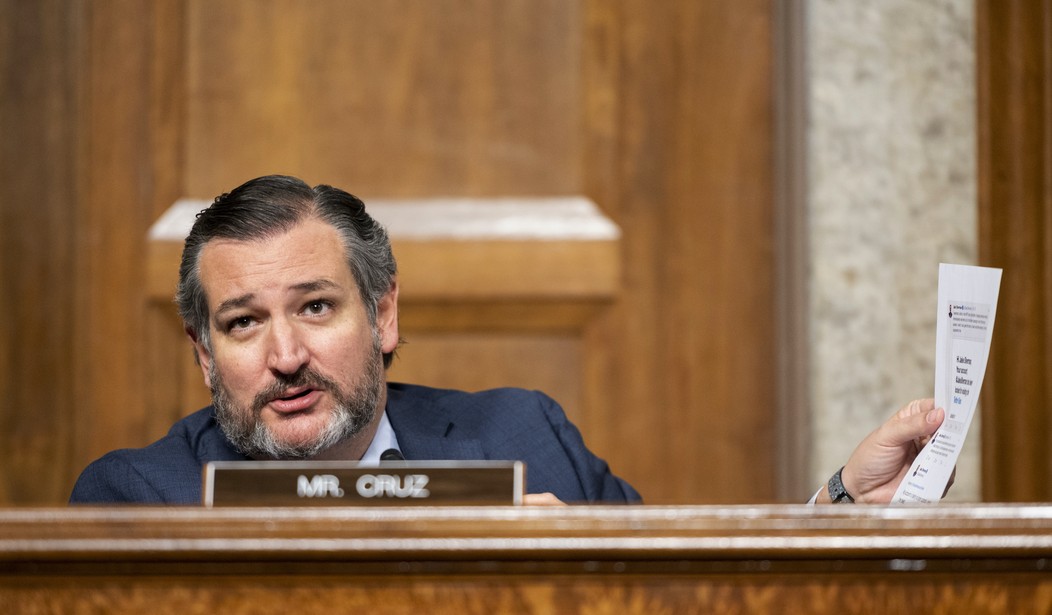When a joint session of Congress meets next week, Senator Ted Cruz will lead a coalition of GOP senators in objecting to the January 6 certification of the Electoral College vote, unless there is an emergency 10-day audit of the results by an electoral commission.
Cruz is joined by Senators Ron Johnson (R-Wisc.), James Lankford (R-Okla.), Steve Daines (R-Mo.), John Kennedy (R-La.), Marsha Blackburn (R-Tenn.), Mike Braun, (R-Ind.). and newly elected senators Cynthia Lummis (R-Wyo.), Roger Marshall (R-Kan.), Bill Hagerty (R-Tenn.), and Tommy Tuberville (R-Ala.), all of whom believe that the election “featured unprecedented allegations of voter fraud and illegal conduct.”
“The election of 2020, like the election of 2016, was hard-fought and, in many swing states, narrowly decided. The 2020 election, however, featured unprecedented allegations of voter fraud, violations and lax enforcement of election law, and other voting irregularities,” reads a joint statement by the senators. “Voter fraud has posed a persistent challenge in our elections, although its breadth and scope are disputed. By any measure, the allegations of fraud and irregularities in the 2020 election exceed any in our lifetimes.”
This is a separate effort from Senator Josh Hawley (R-Mo.), who says he will object to what he says was the failure of key states, such as Pennsylvania, to follow their own election laws.
The efforts by Cruz and other senators are not unprecedented. As was noted by PJM’s Rick Moran, Democrats have objected to the last three election results when a Republican won the election.
“At that quadrennial joint session, there is long precedent of Democratic Members of Congress raising objections to presidential election results, as they did in 1969, 2001, 2005, and 2017,” the joint statement continues. ”
And, in both 1969 and 2005, a Democratic Senator joined with a Democratic House Member in forcing votes in both houses on whether to accept the presidential electors being challenged.”
The most direct precedent on this question arose in 1877, following serious allegations of fraud and illegal conduct in the Hayes-Tilden presidential race. Specifically, the elections in three states-Florida, Louisiana, and South Carolina-were alleged to have been conducted illegally.
In 1877, Congress did not ignore those allegations, nor did the media simply dismiss those raising them as radicals trying to undermine democracy. Instead, Congress appointed an Electoral Commission-consisting of five Senators, five House Members, and five Supreme Court Justices-to consider and resolve the disputed returns.
We should follow that precedent. To wit, Congress should immediately appoint an Electoral Commission, with full investigatory and fact-finding authority, to conduct an emergency 10-day audit of the election returns in the disputed states. Once completed, individual states would evaluate the Commission’s findings and could convene a special legislative session to certify a change in their vote, if needed.
The senators “intend to vote on January 6 to reject the electors from disputed states as not ‘regularly given’ and ‘lawfully certified’ (the statutory requisite), unless and until that emergency 10-day audit is completed.”
Cruz and the other senators acknowledge that their efforts most likely won’t succeed. “We are not naïve. We fully expect most if not all Democrats, and perhaps more than a few Republicans, to vote otherwise,” they say. “But support of election integrity should not be a partisan issue. A fair and credible audit — conducted expeditiously and completed well before January 20 — would dramatically improve Americans’ faith in our electoral process and would significantly enhance the legitimacy of whoever becomes our next President. We owe that to the People.”
_____
Matt Margolis is the author of Airborne: How The Liberal Media Weaponized The Coronavirus Against Donald Trump, and the bestselling book The Worst President in History: The Legacy of Barack Obama. You can follow Matt on Twitter @MattMargolis










Join the conversation as a VIP Member